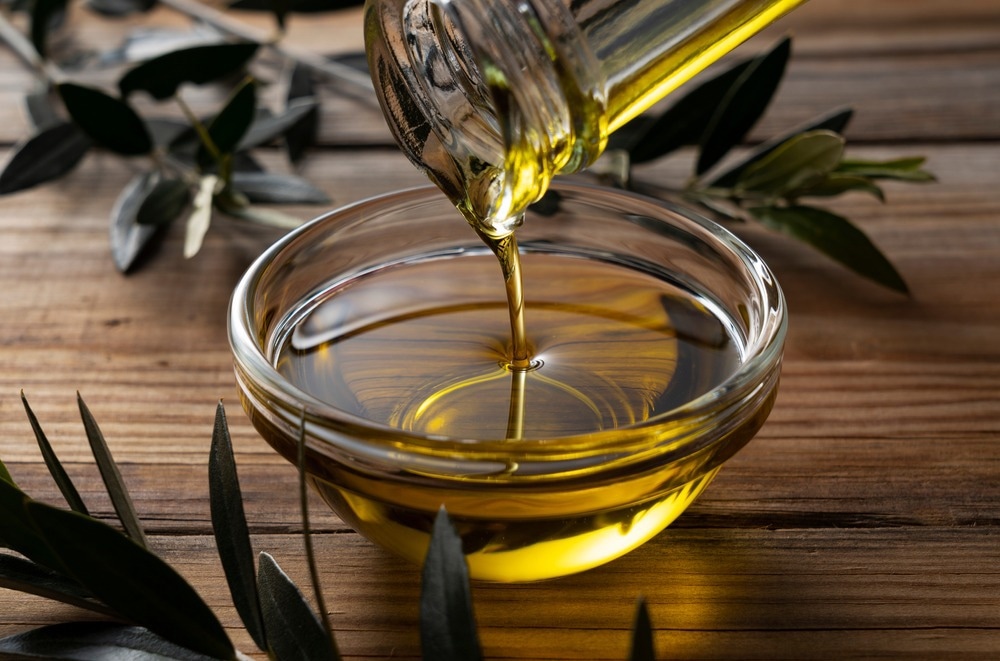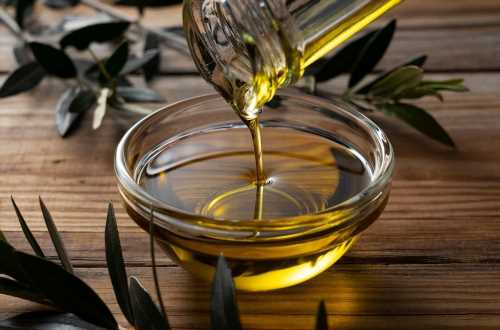In a recent study published in Nutrients, researchers conducted a systematic review to consolidate recent evidence on the preventive benefits of extra virgin olive oil (EVOO) on disease risk factors.

Background
Mediterranean diets are plant-origin diets enriched with vegetables, fruits, nuts, legumes, whole grains, and moderate portions of fermented dairy products and fish, and are crucial for preventing chronic diseases.
EVOO, a common ingredient in the Mediterranean diet, has been linked to a lowered risk of various chronic diseases, such as cardiovascular disease, type 2 diabetes, cerebrovascular accidents, metabolic syndrome, cognitive function decline, and colorectal and breast tumors.
EVOO intake can reduce obesity risk, improving overall mortality. However, there is limited research on the specific daily amount of EVOO's ability to improve risk factors for chronic diseases. In dietary recommendations, there is little emphasis on distinguishing healthy fats like EVOO from other fats and oils.
About the study
In the present systematic review, researchers compared the effects of EVOO-containing meals on clinically significant cardiovascular and metabolic risk factors for cardiovascular disease, type 2 diabetes, metabolic syndrome, and insulin resistance to those of non-EVOO diets.
For the period between January 2000 and December 2022, a systematic data search was performed using the Cochrane Library, Embase, and PubMed databases. Subsequently, the team carried out a narrative data synthesis.
The researchers only included randomized controlled trials (RCTs) with human participants that were published in peer-reviewed scientific journals in English and compared the cardiometabolic impacts of EVOO consumption to non-EVOO diets.
The team excluded In vitro or animal studies, those without randomization, those using only postprandial blood glucose measurements, testing olive oil’s phenolic compounds only, assessing the effects of olive oil added to pills, olive oil with added components, using live oil, not referred to as of the extra virgin type, using pomace or refined olive oil exclusively, abstracts and presentations, and papers showing a possible shift in drugs that might affect any of the factors to be investigated.
Studies evaluating ‘virgin olive oil’ with phenolic content specified were also considered. The lists of references from the papers identified through searches were also reviewed for additional relevant publications to include. The Academy of Nutrition and Dietetics Quality Criteria Checklist (ANDQCC) was used to assess the quality of included RCTs.
Results
In total, 34 of the 281 retrieved articles met the eligibility criteria and were considered for the final analysis, all of which were rated as 'positive' based on the ANDQCC assessment. Several references were included, including subgroup analyses of the Prevencion con Dieta Med (PREDIMED) trial. EVOO outperformed alternative fats from food and low-fat (LF) diets in managing clinical indicators such as low-density lipoprotein-cholesterol (LDL-c) and blood pressure (BP), raising protective high-density lipoprotein-cholesterol (HDL-c) and improving glucose as well as weight control.
The polyphenol content of EVOO, instead of the amount of monounsaturated fats, was likely responsible for its beneficial effects. Compared to sunflower oil, EVOO reduced systolic BP (SBP) among hypertensive patients and healthy individuals. Certain phenols might be critical for blood pressure reduction. One study reported SBP reduction with 161.0 mg/kg of phenol among hypertensive patients, whereas two studies showed no such effects with >300.0 mg/kg of phenol.
EVOO may decrease low-density lipoprotein cholesterol for initial levels exceeding 120.0 mg/dL and elevate HDL-c levels in the case of higher phenolic content, and diets containing daily EVOO were successful for losing weight despite greater calorie intake than LF diets. Furthermore, EVOO with ≥150.0 mg/kg of phenol could reduce LDL oxidation. EVOO can lower LDL-c levels for initial values above 120.0 mg/dL and elevate HDL-c levels with an increase in the phenolic content, and dietary regimes containing daily extra-virgin olive oil can effectively decrease body weight despite greater caloric intake than LF meals. Further, EVOO with ≥150.0 mg/kg of phenol could reduce LDL oxidation.
Few trials have included patients with high initial fasting blood glucose (FBG) or diabetes mellitus type 2; therefore, the impact of extra-virgin olive oil on the FBG in relation to other dietary regimes is unclear. Daily EVOO, on the other hand, can enhance sensitivity to insulin as evaluated by the Homeostatic Model Assessment for Insulin Resistance (HOMA-IR) compared to LF diets.
The shortest period to health gains and the lowest daily quantity of EVOO necessary to improve blood pressure, HDL-c, and LDL-c were 21 days and 25.0 mL (almost two tablespoons) daily, respectively, with LDL-c and diastolic BP (DBP) potentially requiring >300.0 mg of phenol per kg for maximal benefits. EVOO's ability to enhance the diagnostic biomarkers for congenital heart disease, i.e., BP, HDL-c, and LDL-c, may be related to its ability to reduce CHD risk.
While diets enriched with vegetable seed oils may lower LDL more effectively than EVOO, a daily diet rich in EVOO will create healthier LDL since its particles will grow larger with a lower likelihood of being oxidized. Further, extra-virgin olive oil has been proven to reduce apoprotein B-100, implying fewer low-density lipoprotein particles. EVOO’s capacity to reduce type 2 diabetes and metabolic syndrome risks is connected to its impact on HOMA-IR, insulin, and FBG, which reportedly improve following EVOO intake as opposed to diets comprising polyunsaturated fat-rich oils (sunflower oil) or LF diets.
Conclusion
Overall, the findings showed that incorporating EVOO into dietary patterns in the Mediterranean diet can significantly reduce the risk of chronic disease. Regular consumption of EVOO, starting with two tablespoons daily, can improve various risk factors in as few as three weeks. In addition, EVOO is a superior choice for reducing chronic disease risk in diets than other dietary fats or refined-type olive oil.
Cooking vegetables in Mediterranean countries with EVOO increases the absorption of fat-soluble carotenoids and enhances vegetable consumption. Future research should focus on EVOO with known phenol content, non-European participants with unhealthy risk factors, and larger sample sizes.
- Flynn, M., Tierney, A. and Itsiopoulos, C. (2023) "Is Extra Virgin Olive Oil the Critical Ingredient Driving the Health Benefits of a Mediterranean Diet? A Narrative Review", Nutrients, 15(13), p. 2916. doi: 10.3390/nu15132916. https://www.mdpi.com/2072-6643/15/13/2916
Posted in: Medical Science News | Medical Research News | Disease/Infection News
Tags: Blood, Blood Pressure, Cardiometabolic, Cardiovascular Disease, Cholesterol, Chronic, Chronic Disease, Cognitive Function, Colorectal, Congenital Heart Disease, Diabetes, Diabetes Mellitus, Diagnostic, Diet, Drugs, Fasting, Fish, Food, Glucose, Heart, Heart Disease, in vitro, Insulin, Insulin Resistance, Lipoprotein, Metabolic Syndrome, Mortality, Nutrients, Nutrition, Obesity, Olive Oil, Phenol, Polyphenol, Research, Syndrome, Type 2 Diabetes, Vegetables

Written by
Pooja Toshniwal Paharia
Dr. based clinical-radiological diagnosis and management of oral lesions and conditions and associated maxillofacial disorders.
Source: Read Full Article
